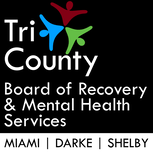305 Discipline Procedure
Original Approval Date: February 21, 1996
Revision Effective: June 17, 2009
Supersedes: #205
The Tri-County Board believes that employees should be treated fairly and that disciplinary actions are prompt, consistent and impartial. The major purpose of a disciplinary action is to correct the problem, prevent it from happening again, and to prepare the employee for satisfactory performance in the future. While it is impossible to list every action that is unacceptable conduct, the following lists some examples:
a. Neglect of duty
b. Incompetency
c. Inefficiency
d. Dishonesty
e. Drunkenness
f. Immoral conduct
g. Insubordination
h. Discourteous treatment of the public
i. Any other failure of good behavior, and
j. Any other acts of misfeasance, malfeasance and nonfeasance in service.
The administration of discipline at the Tri-County Board should be uniform and progressive in nature. The graduated disciplinary steps are as follows:
1. Verbal Instruction and Cautioning
2. Written Reprimand
3. One (1) to three (3) day suspension without pay
4. Five (5) to fifteen (15) day suspension without pay
5. Termination
Discipline may begin at any step, depending on the severity of the offense. Different, but related, offenses may be treated through the same progression of discipline. The disciplinary response to an employee's infraction(s) shall be at the discretion of the Executive Director.
Preceding each disciplinary action, the supervisor will give the employee an opportunity to explain the infraction. Where feasible, every attempt will be made to counsel and or train the employee before disciplinary action is taken.
Each disciplinary action shall cease to have force and effect for progressive discipline purposes after twenty-four (24) months, provided there is no intervening disciplinary action during the twenty-four (24) month period.
All records of discipline shall be maintained in the employee's personnel file.
Revision Effective: June 17, 2009
Supersedes: #205
The Tri-County Board believes that employees should be treated fairly and that disciplinary actions are prompt, consistent and impartial. The major purpose of a disciplinary action is to correct the problem, prevent it from happening again, and to prepare the employee for satisfactory performance in the future. While it is impossible to list every action that is unacceptable conduct, the following lists some examples:
a. Neglect of duty
b. Incompetency
c. Inefficiency
d. Dishonesty
e. Drunkenness
f. Immoral conduct
g. Insubordination
h. Discourteous treatment of the public
i. Any other failure of good behavior, and
j. Any other acts of misfeasance, malfeasance and nonfeasance in service.
The administration of discipline at the Tri-County Board should be uniform and progressive in nature. The graduated disciplinary steps are as follows:
1. Verbal Instruction and Cautioning
2. Written Reprimand
3. One (1) to three (3) day suspension without pay
4. Five (5) to fifteen (15) day suspension without pay
5. Termination
Discipline may begin at any step, depending on the severity of the offense. Different, but related, offenses may be treated through the same progression of discipline. The disciplinary response to an employee's infraction(s) shall be at the discretion of the Executive Director.
Preceding each disciplinary action, the supervisor will give the employee an opportunity to explain the infraction. Where feasible, every attempt will be made to counsel and or train the employee before disciplinary action is taken.
Each disciplinary action shall cease to have force and effect for progressive discipline purposes after twenty-four (24) months, provided there is no intervening disciplinary action during the twenty-four (24) month period.
All records of discipline shall be maintained in the employee's personnel file.
